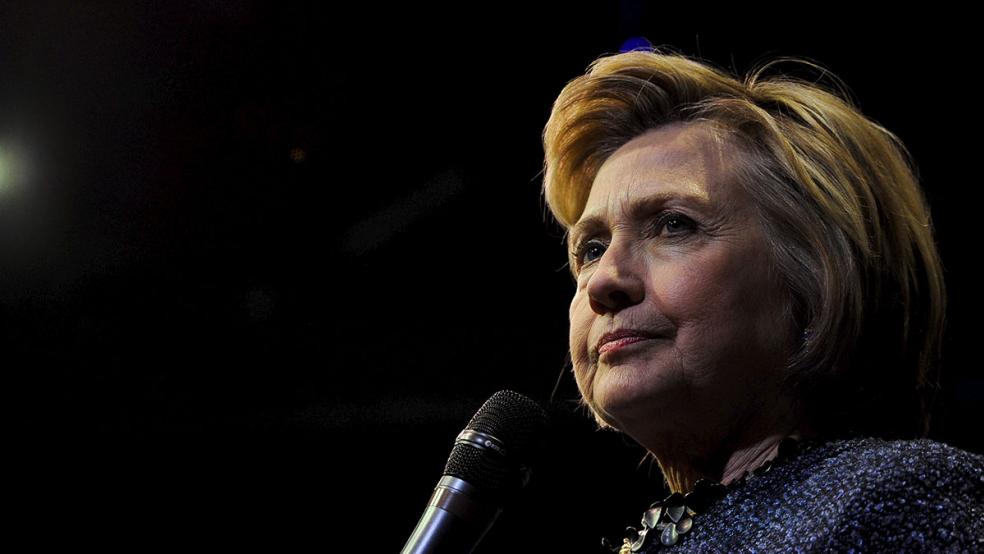Much has been written about the economic consequences of the slowdown in economic growth in recent years, but what about the political implications? If the slowdown continues, and there is reason to believe that it will, how will it affect the ability of the next president to implement his, or more likely her, economic agenda?
If Hillary Clinton wins in November and economic growth remains low, the call from Republicans for tax cuts will become louder than it already is. The promise of growth from tax cuts has proven false in the past, but it hasn’t made any difference in the Republican establishment’s dogged pursuit of this agenda. A prolonged slowdown in economic growth will give them even more ammunition to pursue an agenda that serves the interests of the donor class rather than helping the economy to flourish.
Related: Can Janet Yellen and the Fed Manage Market Expectations?
If the Republicans somehow manage to win and retain control of the House and Senate, tax cuts will become a reality. A significant faction within the Republican Party has become dissatisfied with the supply-side, trickle down agenda, the rise of Trump attests to that, but once Trump is in power they would be forgotten. The Trump supporters would be told, as always, that lifting all boats requires the yachts be lifted first and the right-wing media would join the establishment in trying to convince them that tax cuts are the key to shared prosperity.
If growth remains low, we will also hear much more about how government regulation is stifling business activity. Regulation of the financial sector will surely be a target, but regulation more generally will come under attack. If Republicans take power, we know what will happen, but the real worry is that Clinton might be tempted to give in to the idea that the financial sector must be unleashed from the sensible reforms put into place in the wake of the financial crisis, perhaps as a compromise to implement other items on her policy agenda.
Let’s hope her promises to “veto Republican efforts to repeal or weaken Dodd-Frank, tackle dangerous risks in the big banks and elsewhere in the financial system, and hold both individuals and corporations accountable when they break the law” can be believed. Let’s also hope she will continue and even strengthen the Obama administration’s recent initiative to pursue more aggressive antitrust enforcement, a step that could help to promote growth enhancing innovation.
Related: U.S. Still Seen Growing Above Potential in 2016: NY Fed
On a more positive note, a slowdown in economic growth could open the doors to talented, innovative immigrants from around the world. I support immigration more generally – immigrants have been blamed for economic ills they did not create – but perhaps we can find a way to at least open our doors to people who are likely to make important contributions to our economic well being. But perhaps not. The xenophobia on display from Donald Trump, and the general attitude toward immigration among Republicans more generally does not inspire confidence.
And maybe, just maybe, a slowdown in growth will prompt us to make needed investments in our increasingly depleted infrastructure. It’s hard to imagine that the debt fear mongers will allow this to happen on the scale that is needed, but any progress at all would be welcome. It would provide a needed supply-side investment in the economy that would help with growth, and it would also be a means of creating jobs and stimulating demand. As part of this initiative, I would like to see us invest in alternative energy development, but that would require Republicans to admit we have a problem with global warming, something they are unlikely to do because of fears it would lead to tax increases and regulation of the business interests that have kept them in power.
Finally, perhaps a growth slowdown will prompt lawmakers to increase their support for basic research. Last year, federal support of research and development as a share of the total budget “was the lowest it had been in 50 years.” Basic research is not directed at producing results that fulfill particular economic needs, but historically it has been an important source of innovations that drive economic productivity. Republicans and Democrats have mostly agreed on the importance of supporting basic research in the past, but I am probably dreaming to think support for research can be increased.
Related: If Consumers Don’t Open Their Wallets, We’re In for Another Recession
Hillary Clinton has said she “would increase funding for scientific research at agencies like the National Institutes of Health and the National Science Foundation.” If she wins the Republicans will do everything they can to “confine her to a single term” and what is good for the economy will take a back seat to politics. The Republican’s politicization of science in areas such as global warming, their anti-science attitude, and the quest to reduce government spending to support past tax cuts won’t help either.
The slowdown in economic growth, which began before the Great Recession, will be very difficult to overcome. But it’s important that we try. Problems such as rising inequality, the availability of decent jobs, and lowering the cost of college will be much easier to solve with higher economic growth. Ideally, if Hillary Clinton wins, as seems likely at this point, Republicans would set aside political goals, find common ground with Democrats, and make progress on this problem. But that’s not going to happen.
Low economic growth can be blamed on the president and used to make political gains. The strategy of blocking anything Democrats propose – even policies Republicans have favored in the past – pursued during the Obama administration will continue no matter how much indifference it shows to the millions and millions of people struggling to make ends meet.






